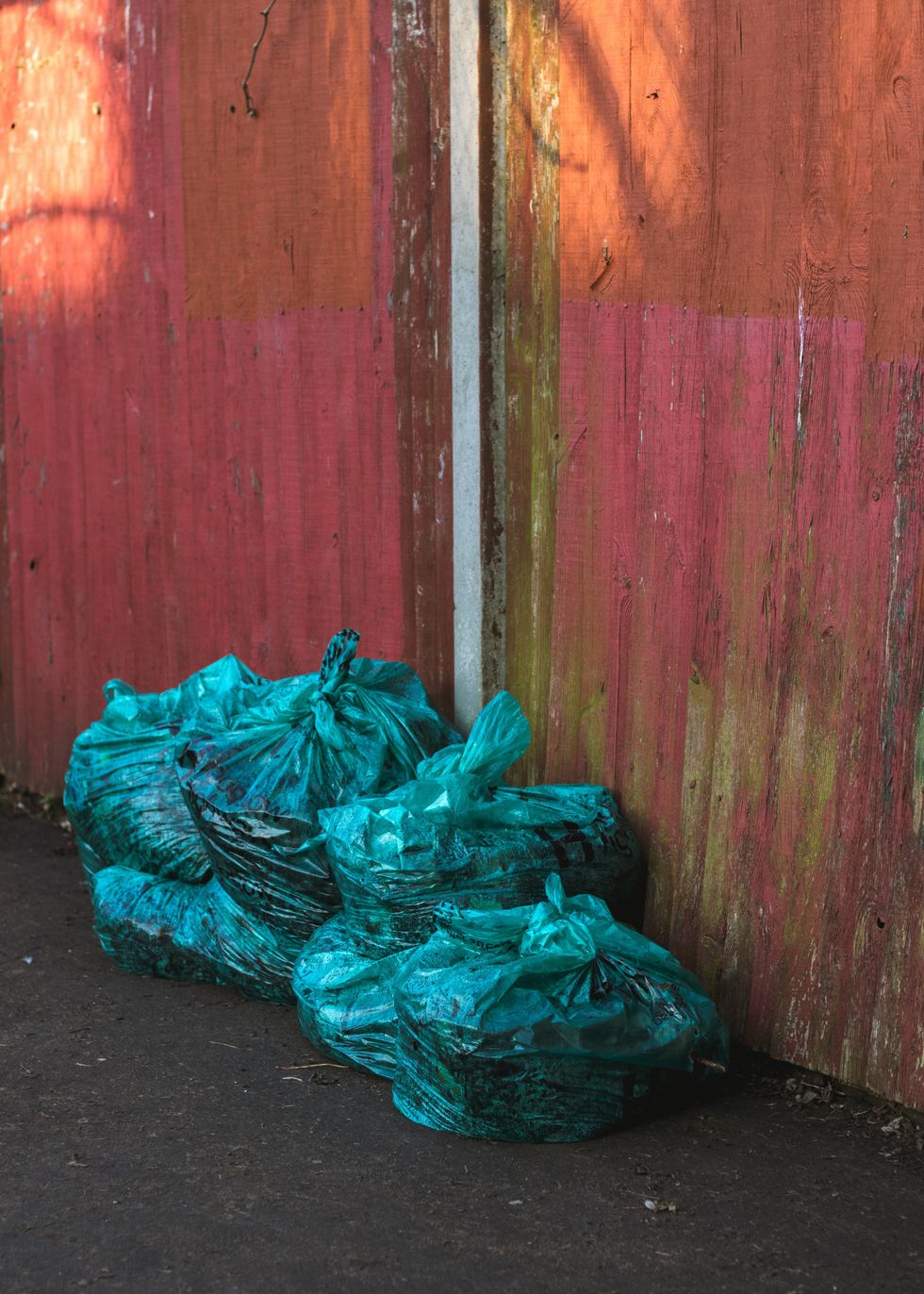Americans blissfully throw things away without ever seeing an overflowing landfill. We may forget about that trash, but our actions still have consequences. The climate crisis is here, and it calls for permanent change. As we enter the fall 2020 school year and welcome new routines, being conscious of all the things we mindlessly throw away must be part of our routine. Rethinking our waste will minimize pollution on all levels. There is no time to wait. Here are 3 steps to help you become a sustainable student.
Ditch single use plastic
 green plastic bags near wooden wallPhoto by Edward Howell on Unsplash
green plastic bags near wooden wallPhoto by Edward Howell on UnsplashPlastic will never decompose. Almost all the plastic ever created still exists on this earth today. Instead of decomposing, plastic breaks down into smaller microscopic pieces. About 79% of it isn't even recycled like we think it is; ending up in landfills or the ocean.
How to help? Use bar soap instead of bottled body wash, reusable water bottles instead of disposable ones, and always keep reusable bags in your car. There are plenty of ways to avoid plastic. Don't buy the 50 pack of Bic pens if they will all get lost the first week of class. If dorm shopping, minimize what you don't need so you will not end up with 4 extra plastic organizers. Products made from bamboo and glass are good earth friendly options to keep in mind. If you've used up household items and need to get new ones, replace them with sustainable ones. From 100% compostable coffee pods to phone cases, there are sustainable alternatives for everything. No excuses. Every change will make a difference, just as every small piece of trash adds up to the tons dumped in landfills each year.
Eat less meat
 pizza with green leaves and red tomato on black ceramic platePhoto by Shannon Milling on Unsplash
pizza with green leaves and red tomato on black ceramic platePhoto by Shannon Milling on UnsplashThe animal husbandry produces equally as many carbon emissions as the transportation industry. Red meat on its own takes up 28 times more land and uses 11 times more water than other meat. Meat takes a massive amount of resources to produce and this takes a massive toll on the environment.
Going vegan or vegetarian is not the only way you can help. Doing your part is simple. If everyone ate plant-based at least two days a week, it would decrease carbon emissions by tens of thousands. When grocery shopping or eating out, experiment with something vegetarian or plant-based. It will decrease the demand for so much meat, and in turn, produce less pollution.
Shop for clothes ethically
 blue washed jacket hanging on white doorPhoto by kemal alkan on Unsplash
blue washed jacket hanging on white doorPhoto by kemal alkan on UnsplashFast Fashion companies are responsible for 10 percent of carbon emissions, exceeding international flight emissions. The factories devastate local water systems and communities. Companies such as Hollister, Urban Outfitters, Forever 21, and H&M are only a few names. On top of the environmental devastation these companies cause, they reinforce the idea that fashion is disposable: tempting you to go on another shopping spree and buy clothes that you will get tired of after 1 wear.
Instead of giving your money to these companies, incorporate ethical shopping into your routine. Take advantage of local thrift stores and explore apps like Depop, Poshmark, Vinted, and more that sell second hand clothing. Selling your clothes on these apps also prevents potential clothing waste. These shopping habits produce zero carbon emissions and do not dump waste into local communities. If you do find yourself at the mall, limit impulse buying. Do not buy something if you can't see yourself wearing it at least 30 times. By shopping ethically, we can prevent more carbon emissions from being released, and tons of textile waste from being dumped into rivers.
We do not need to wait for lawmakers for us to make a positive change. As human beings, we have a responsibility to leave the earth as we found it. It's as simple as remembering the reusable bags.



















